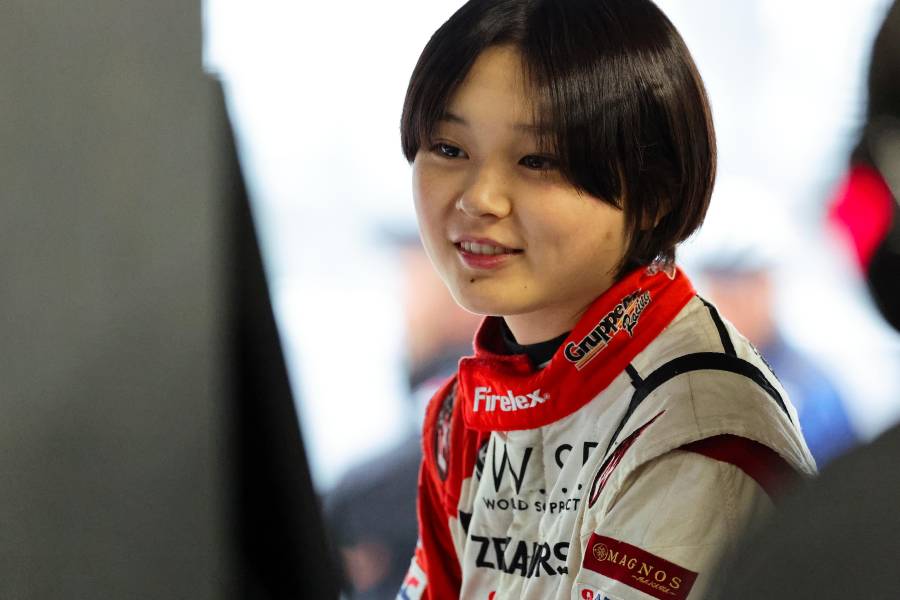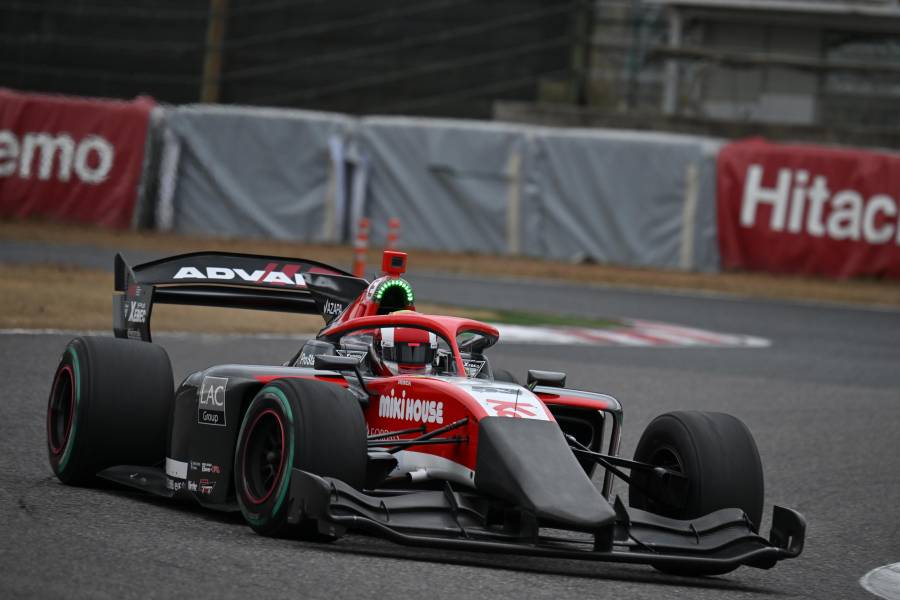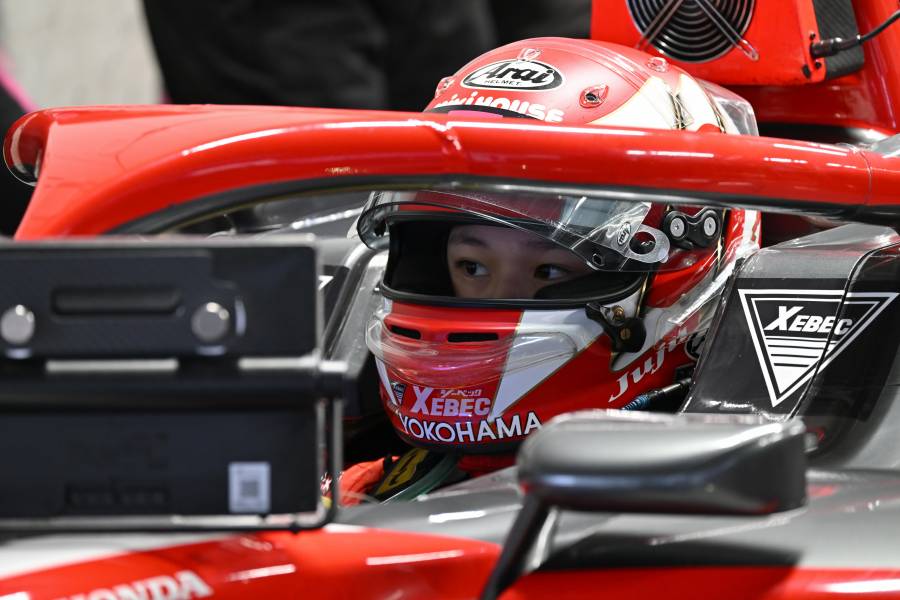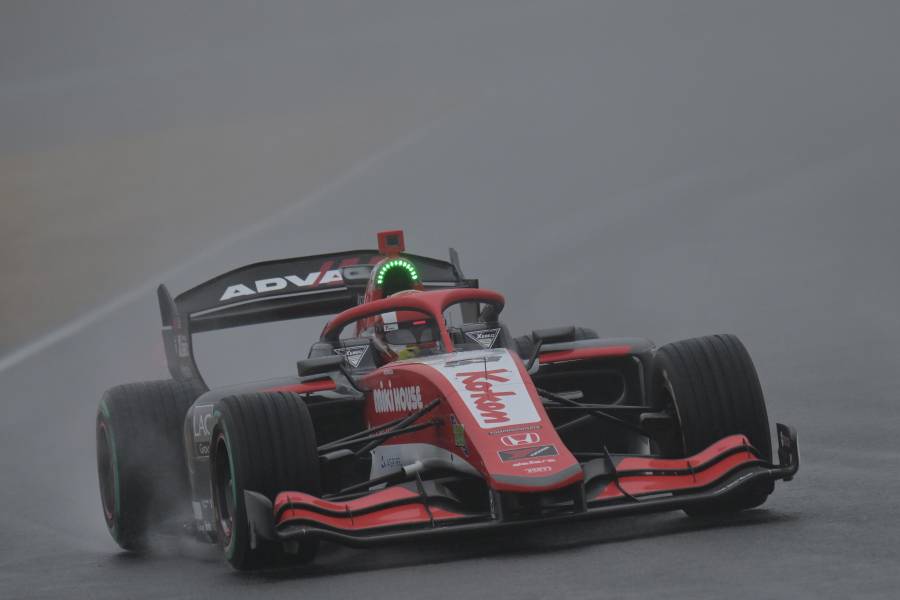Juju Noda: The challenge awaiting Japan’s ‘child prodigy’ in Super Formula
By Jamie Klein

During last December’s Super Formula test at Suzuka, there was one new arrival drawing much more attention than usual. In fact, that’s putting it mildly. The number of journalists, TV crew and fans surrounding Juju Noda - hereafter referred to simply as ‘Juju’, as per the name on her official licence - throughout the test had to be seen to be believed.
The pressure on Juju in that test can’t be overestimated. Not only was it her first experience of the Honda-powered Dallara SF23 that is second only to Formula 1 in terms of performance, it was not behind closed doors but in the full glare of the national media. And yet, she handled the pressure superbly, completing three days of running without making any mistakes and lapping at a very similar pace to some of her fellow rookies.
By the end of the test, plenty in the paddock were singing Juju’s praises, and sure enough, early in the new year confirmation arrived that the 18-year-old would be racing full-time in Super Formula with the team she tested for at Suzuka, TGM Grand Prix, in 2024.

The daughter of ex-F1 racer Hideki Noda, Juju seemed destined for stardom from a young age. Starting off in karts at three, she tested a Formula 4 car as early as nine, and by the age of 12 she was garnering attention with her exploits in Formula 3 machinery at Okayama International Circuit. At that time, she was billed by many as a potential F1 prospect.
Now, with four seasons of car racing abroad under her belt, Juju will be tackling a full campaign on Japanese soil for the first time. Not only in terms of the car itself, she is aware that the level of competition and the sheer scrutiny she will face from fans and media alike will be a major step up from anything she has experienced in her fledgling career so far.
“I’ll be up against some of the top drivers in Japan, and some drivers coming from overseas who have the chance to progress to F1, so, realistically, I’m not going to win straight away,” says Juju. “But I hope to learn a lot and steadily grow as a driver. I’m really excited.”
Besides the obvious advantage of looser age restrictions (generally, drivers must wait until they are 16 to race cars in Japan), Juju says that racing in categories such as Danish Formula 4, W Series and Euroformula Open over the past four years has given her a greater appreciation of the qualities required for success in international motorsport.
“I went to Europe when I was 14 years old, and I overcame a lot of hurdles that I wouldn’t have faced if I was in Japan,” she reflects. “Since I started racing with my father, we have always had the mindset of ‘even if you lose, never give up’, and I think this really toughened me up on the mental side, so I think that is one of my biggest strengths.
“In Europe, if you don’t assert yourself, you’ll be left behind. The way of thinking and culture is totally different from Japan. For example, in Japan, people might think it’s embarrassing to go to such great lengths to win, but in Europe, the embarrassing thing is losing. I’ve been able to understand these cultural differences, and I realised I had to make myself tougher.”
Juju won’t be the first woman to race in Super Formula - she’ll be the first since Tatiana Calderon made her final appearance in 2021 - but she will be the first from Japan, as well as the youngest driver of either gender to start a race at the age of 18, one month, two days. But she isn’t letting either of those things distract her from the job at hand.
Asked how it feels to be Japan’s first female driver in Super Formula, Juju replies: “Honestly, It’s something I’m not that fixated on. I’ve made it this far because of all the hard work I’ve done up to now, as well as the support of my family, the team around me, the fans.
“To be able to be the first [Japanese] girl, the youngest driver in Super Formula as a result of all that we’ve done so far, it gives me a lot of confidence.”

Up to now, Juju has largely raced as part of the family Noda Racing structure. And while she will have to get used to working with a much larger group of people at TGM, she will still have her father Hideki close by her side as he takes on a team advisor role.
While accepting that his daughter always will be at something of a disadvantage from a physical standpoint against her male rivals, especially considering that Super Formula races are much longer than those in lower categories, Hideki is convinced that Juju’s feel for the behaviour of a racing car is a match for any other driver on the grid.
“She has an amazing ability to feel how the car is behaving in different circumstances, in different track conditions, depending how the tyres are, or how the brakes are,” says Hideki. “She has the ability to sense all of that very well.
“She is still not that experienced, so it’s about finding a way to express that [to the engineers]. That is something for her to work on from now on, but in terms of feeling and understanding, I don’t think she is lacking anything compared to the other drivers.”
While Juju will be racing in Japan for the first time, the Nodas are still keeping a foot in Europe as she will combine racing in Super Formula with a season of racing in BOSS GP, where she will drive an old Formula Renault 3.5 car (although in the case of date clashes, her commitments in Super Formula naturally will take priority).
On whether he still believes her daughter is on the path to F1, Hideki gives a cautious answer, pointing out that there are other world championships, such as Formula E, where she could make a career. He also says that her university studies, as she prepares to enrol in Nihon University from April, could also take her on a different path entirely.
“If the results are good, then it would be great if she can go there [F1],” says Hideki. “But there are other categories she can race in. Or it could be the case that she decides to stop racing after a year. It’s really up to her to decide. There’s no specific plan.
“Of course we always discuss things a lot, and I give her the information she needs to make a decision. But in the end, the decision about what to do in the end is hers.
“She said last year that she wanted to try the Super Formula car, and so we decided to arrange the test. And during the test, she really liked the atmosphere in TGM and enjoyed driving the car. We felt it was a team where she would be able to deliver her best.
“I’m not demanding anything of her [this season]. I’m just hoping she does a good job.”
As she tackles her debut Super Formula season at an age that most of her rivals were barely just starting in car racing, any results Juju achieves will be taken as a bonus. But equally, it’s clear that the ambition that has taken her this far still burns brightly - and that her presence on the grid in itself is a major boost for the series and Japanese motorsport.
